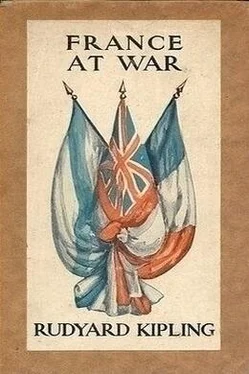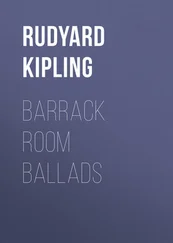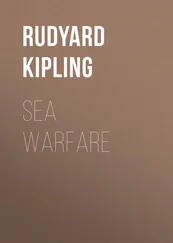Rudyard Kipling - France at War
Здесь есть возможность читать онлайн «Rudyard Kipling - France at War» весь текст электронной книги совершенно бесплатно (целиком полную версию без сокращений). В некоторых случаях можно слушать аудио, скачать через торрент в формате fb2 и присутствует краткое содержание. Год выпуска: 2014, Издательство: epubBooks Classics, Жанр: Биографии и Мемуары, prose_military, на английском языке. Описание произведения, (предисловие) а так же отзывы посетителей доступны на портале библиотеки ЛибКат.
- Название:France at War
- Автор:
- Издательство:epubBooks Classics
- Жанр:
- Год:2014
- ISBN:нет данных
- Рейтинг книги:4 / 5. Голосов: 1
-
Избранное:Добавить в избранное
- Отзывы:
-
Ваша оценка:
- 80
- 1
- 2
- 3
- 4
- 5
France at War: краткое содержание, описание и аннотация
Предлагаем к чтению аннотацию, описание, краткое содержание или предисловие (зависит от того, что написал сам автор книги «France at War»). Если вы не нашли необходимую информацию о книге — напишите в комментариях, мы постараемся отыскать её.
and
.
France at War — читать онлайн бесплатно полную книгу (весь текст) целиком
Ниже представлен текст книги, разбитый по страницам. Система сохранения места последней прочитанной страницы, позволяет с удобством читать онлайн бесплатно книгу «France at War», без необходимости каждый раз заново искать на чём Вы остановились. Поставьте закладку, и сможете в любой момент перейти на страницу, на которой закончили чтение.
Интервал:
Закладка:
FRENCH OFFICERS
The guns began to speak again among the hills that we dived into; the air grew chillier as we climbed; forest and wet rocks closed round us in the mist, to the sound of waters trickling alongside; there was a tang of wet fern, cut pine, and the first breath of autumn when the road entered a tunnel and a new world—Alsace.
Said the Governor of those parts thoughtfully: "The main thing was to get those factory chimneys smoking again." (They were doing so in little flats and villages all along.) "You won't see any girls, because they're at work in the textile factories. Yes, it isn't a bad country for summer hotels, but I'm afraid it won't do for winter sports. We've only a metre of snow, and it doesn't lie, except when you are hauling guns up mountains. Then, of course, it drifts and freezes like Davos. That's our new railway below there. Pity it's too misty to see the view."
But for his medals, there was nothing in the Governor to show that he was not English. He might have come straight from an Indian frontier command.
One notices this approximation of type in the higher ranks, and many of the juniors are cut out of the very same cloth as ours. They get whatever fun may be going: their performances are as incredible and outrageous as the language in which they describe them afterward is bald, but convincing, and—I overheard the tail–end of a yarn told by a child of twenty to some other babes. It was veiled in the obscurity of the French tongue, and the points were lost in shouts of laughter —but I imagine the subaltern among his equals displays just as much reverence for his elders and betters as our own boys do. The epilogue, at least, was as old as both Armies:
"And what did he say then?"
"Oh, the usual thing. He held his breath till I thought he'd burst. Then he damned me in heaps, and I took good care to keep out of his sight till next day."
But officially and in the high social atmosphere of Headquarters their manners and their meekness are of the most admirable. There they attend devoutly on the wisdom of their seniors, who treat them, so it seemed, with affectionate confidence.
FRONT THAT NEVER SLEEPS
When the day's reports are in, all along the front, there is a man, expert in the meaning of things, who boils them down for that cold official digest which tells us that "There was the usual grenade fighting at―—. We made appreciable advance at―—," etc. The original material comes in sheaves and sheaves, where individual character and temperament have full and amusing play. It is reduced for domestic consumption like an overwhelming electric current. Otherwise we could not take it in. But at closer range one realizes that the Front never sleeps; never ceases from trying new ideas and weapons which, so soon as the Boche thinks he has mastered them, are discarded for newer annoyances and bewilderments.
"The Boche is above all things observant and imitative," said one who counted quite a few Boches dead on the front of his sector. "When you present him with a new idea, he thinks it over for a day or two. Then he presents his riposte."
"Yes, my General. That was exactly what he did to me when I —did so and so. He was quite silent for a day. Then—he stole my patent."
"And you?"
"I had a notion that he'd do that, so I had changed the specification."
Thus spoke the Staff, and so it is among the junior commands, down to the semi–isolated posts where boy–Napoleons live on their own, through unbelievable adventures. They are inventive young devils, these veterans of 21, possessed of the single ideal—to kill—which they follow with men as single–minded as themselves. Battlefield tactics do not exist; when a whole nation goes to ground there can be none of the "victories" of the old bookish days. But there is always the killing—the well–schemed smashing of a full trench, the rushing out and the mowing down of its occupants; the unsuspicious battalion far in the rear, located after two nights' extreme risk alone among rubbish of masonry, and wiped out as it eats or washes itself; and, more rarely, the body to body encounter with animals removed from the protection of their machinery, when the bayonets get their chance. The Boche does not at all like meeting men whose womenfolk he has dishonoured or mutilated, or used as a protection against bullets. It is not that these men are angry or violent. They do not waste time in that way. They kill him.
THE BUSINESS OF WAR
The French are less reticent than we about atrocities committed by the Boche, because those atrocities form part of their lives. They are not tucked away in reports of Commissions, and vaguely referred to as "too awful." Later on, perhaps, we shall be unreserved in our turn. But they do not talk of them with any babbling heat or bleat or make funny little appeals to a "public opinion" that, like the Boche, has gone underground. It occurs to me that this must be because every Frenchman has his place and his chance, direct or indirect, to diminish the number of Boches still alive. Whether he lies out in a sandwich of damp earth, or sweats the big guns up the crests behind the trees, or brings the fat, loaded barges into the very heart of the city, where the shell–wagons wait, or spends his last crippled years at the harvest, he is doing his work to that end.
If he is a civilian he may—as he does—say things about his Government, which, after all, is very like other popular governments. (A lifetime spent in watching how the cat jumps does not make lion–tamers.) But there is very little human rubbish knocking about France to hinder work or darken counsel. Above all, there is a thing called the Honour of Civilization, to which France is attached. The meanest man feels that he, in his place, is permitted to help uphold it, and, I think, bears himself, therefore, with new dignity.
A CONTRAST IN TYPES
This is written in a garden of smooth turf, under a copper beech, beside a glassy mill–stream, where soldiers of Alpine regiments are writing letters home, while the guns shout up and down the narrow valleys.
A great wolf–hound, who considers himself in charge of the old–fashioned farmhouse, cannot understand why his master, aged six, should be sitting on the knees of the Marechal des Logis, the iron man who drives the big car.
"But you are French, little one?" says the giant, with a yearning arm round the child.
"Yes," very slowly mouthing the French words; "I—can't —speak—French—but—I—am—French."
The small face disappears in the big beard.
Somehow, I can't imagine the Marechal des Logis killing babies—even if his superior officer, now sketching the scene, were to order him!
The great building must once have been a monastery. Twilight softened its gaunt wings, in an angle of which were collected fifty prisoners, picked up among the hills behind the mists.
They stood in some sort of military formation preparatory to being marched off. They were dressed in khaki, the colour of gassed grass, that might have belonged to any army. Two wore spectacles, and I counted eight faces of the fifty which were asymmetrical—out of drawing on one side.
"Some of their later drafts give us that type," said the Interpreter. One of them had been wounded in the head and roughly bandaged. The others seemed all sound. Most of them looked at nothing, but several were vividly alive with terror that cannot keep the eyelids still, and a few wavered on the grey edge of collapse.
They were the breed which, at the word of command, had stolen out to drown women and children; had raped women in the streets at the word of command; and, always at the word of command, had sprayed petrol, or squirted flame; or defiled the property and persons of their captives. They stood there outside all humanity. Yet they were made in the likeness of humanity. One realized it with a shock when the bandaged creature began to shiver, and they shuffled off in response to the orders of civilized men.
Читать дальшеИнтервал:
Закладка:
Похожие книги на «France at War»
Представляем Вашему вниманию похожие книги на «France at War» списком для выбора. Мы отобрали схожую по названию и смыслу литературу в надежде предоставить читателям больше вариантов отыскать новые, интересные, ещё непрочитанные произведения.
Обсуждение, отзывы о книге «France at War» и просто собственные мнения читателей. Оставьте ваши комментарии, напишите, что Вы думаете о произведении, его смысле или главных героях. Укажите что конкретно понравилось, а что нет, и почему Вы так считаете.












